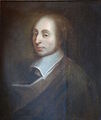Template:Selected anniversaries/July 29: Difference between revisions
Jump to navigation
Jump to search
No edit summary |
No edit summary |
||
| Line 4: | Line 4: | ||
File:Johannes Kies.jpg|link=Johann Kies (nonfiction)|1781: Astronomer and mathematician [[Johann Kies (nonfiction)|Johann Kies]] dies. He was one of the first to propagate Isaac Newton's discoveries in Germany, and dedicated two of his works to the Englishman. | File:Johannes Kies.jpg|link=Johann Kies (nonfiction)|1781: Astronomer and mathematician [[Johann Kies (nonfiction)|Johann Kies]] dies. He was one of the first to propagate Isaac Newton's discoveries in Germany, and dedicated two of his works to the Englishman. | ||
||1801 | ||1801: George Bradshaw born ... cartographer and publisher. | ||
||1805 | ||1805: Alexis de Tocqueville born ... historian and philosopher. | ||
||1839 | ||1839: Gaspard de Prony dies ... mathematician and engineer. | ||
File:George Boole.jpg|link=George Boole (nonfiction)|1840: Mathematician and crime-fighter [[George Boole (nonfiction)|George Boole]] develops new system of symbolic logic which assists mathematicians in the detection and prevention of [[crimes against mathematical constants]]. | File:George Boole.jpg|link=George Boole (nonfiction)|1840: Mathematician and crime-fighter [[George Boole (nonfiction)|George Boole]] develops new system of symbolic logic which assists mathematicians in the detection and prevention of [[crimes against mathematical constants]]. | ||
||1851 | ||1851: Annibale de Gasparis discovers asteroid 15 Eunomia. | ||
||1867: Benjamin Peirce honored: Thomas Hill, president of Harvard College and sometime mathematician, wrote mathematics professor Benjamin Peirce, "I have the honor of informing you that the University, on Commencement Day, conferred on you the Degree of Doctor of Laws in recognition of the transcendent ability with which you have pursued mathematical physical investigations, and in particular for the luster which she had herself for so many years borrowed from your genius." | ||1867: Benjamin Peirce honored: Thomas Hill, president of Harvard College and sometime mathematician, wrote mathematics professor Benjamin Peirce, "I have the honor of informing you that the University, on Commencement Day, conferred on you the Degree of Doctor of Laws in recognition of the transcendent ability with which you have pursued mathematical physical investigations, and in particular for the luster which she had herself for so many years borrowed from your genius." | ||
| Line 40: | Line 40: | ||
File:Dard Hunter, Glyph Warden.jpg|link=Dard Hunter, Glyph Warden|1976: ''[[Dard Hunter, Glyph Warden]]'' "inspired a generation of cryptographers," says actor-cryptographer [[Niles Cartouchian (1900s)|Niles Cartouchian]]. | File:Dard Hunter, Glyph Warden.jpg|link=Dard Hunter, Glyph Warden|1976: ''[[Dard Hunter, Glyph Warden]]'' "inspired a generation of cryptographers," says actor-cryptographer [[Niles Cartouchian (1900s)|Niles Cartouchian]]. | ||
||Isidor Isaac Rabi | ||1988: Isidor Isaac Rabi dies ... physicist who won the Nobel Prize in Physics in 1944 for his discovery of nuclear magnetic resonance, which is used in magnetic resonance imaging. He was also one of the first scientists in the United States to work on the cavity magnetron, which is used in microwave radar and microwave ovens. | ||
|| | ||1990: Arthur Lee Samuel dies ... pioneer in the field of computer gaming and artificial intelligence. He coined the term "machine learning" in 1959. The Samuel Checkers-playing Program was among the world's first successful self-learning programs, and as such a very early demonstration of the fundamental concept of artificial intelligence (AI).[5] He was also a senior member in the TeX community who devoted much time giving personal attention to the needs of users and wrote an early TeX manual in 1983. | ||
|| | ||1994: Dorothy Hodgkin dies ... biochemist and biophysicist, Nobel Prize laureate. | ||
|| | ||1996: Marcel-Paul Schützenberger dies ... mathematician and theorist. | ||
|| | ||2001: Wau Holland dies ... computer scientist, co-founded Chaos Computer Club. | ||
|| | ||2005: Astronomers announce their discovery of the dwarf planet Eris. | ||
||Nicolae Popescu | ||2008: Bruce Edward Ivins dies ... scientist and bio-defense researcher. | ||
||2010: Nicolae Popescu dies ... mathematician and Emeritus Professor. | |||
</gallery> | </gallery> | ||
Revision as of 20:02, 21 August 2018
1781: Astronomer and mathematician Johann Kies dies. He was one of the first to propagate Isaac Newton's discoveries in Germany, and dedicated two of his works to the Englishman.
1840: Mathematician and crime-fighter George Boole develops new system of symbolic logic which assists mathematicians in the detection and prevention of crimes against mathematical constants.
1932: In Washington, D.C., troops disperse the last of the "Bonus Army" of World War I veterans.
1976: Dard Hunter, Glyph Warden "inspired a generation of cryptographers," says actor-cryptographer Niles Cartouchian.




